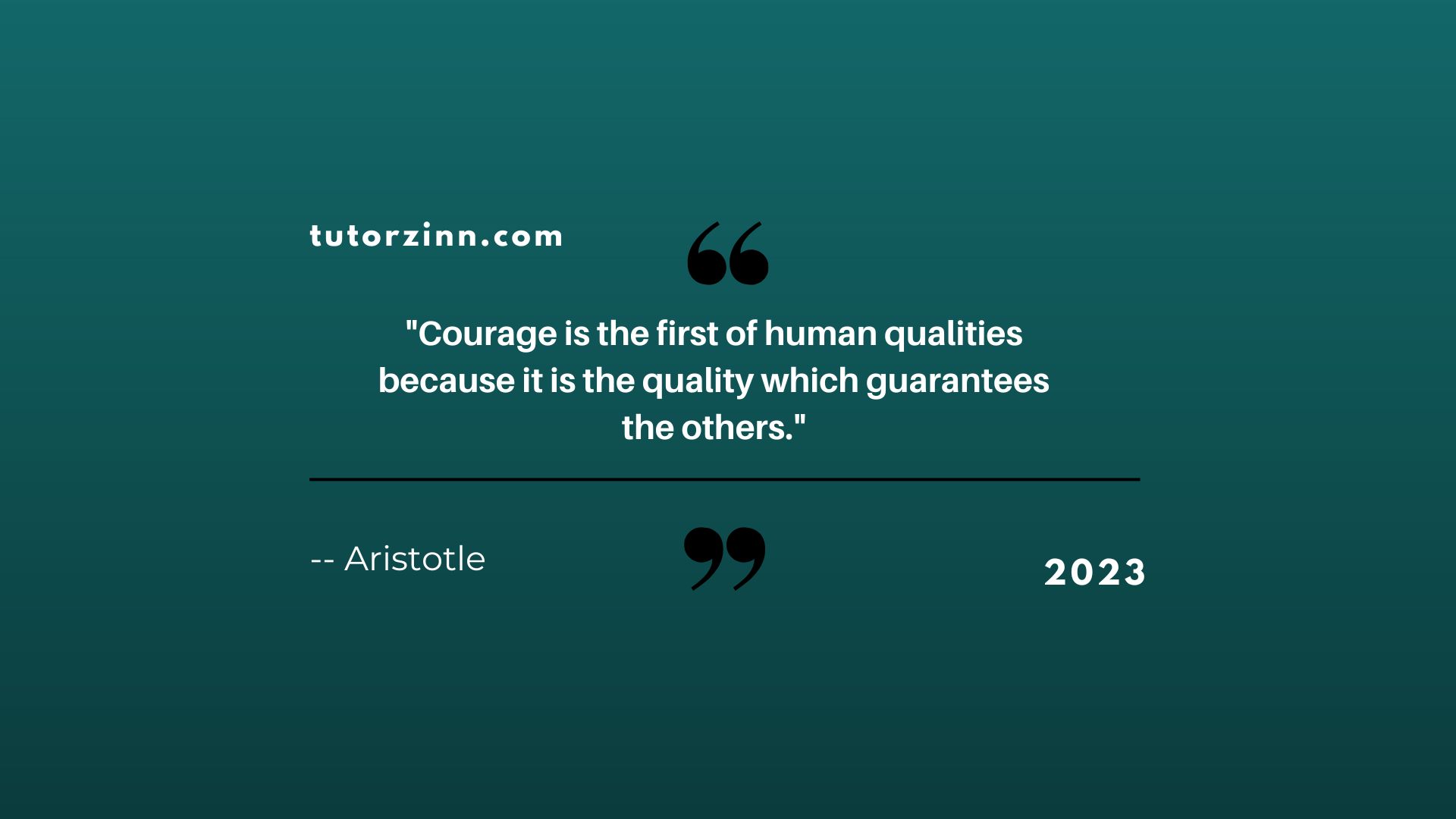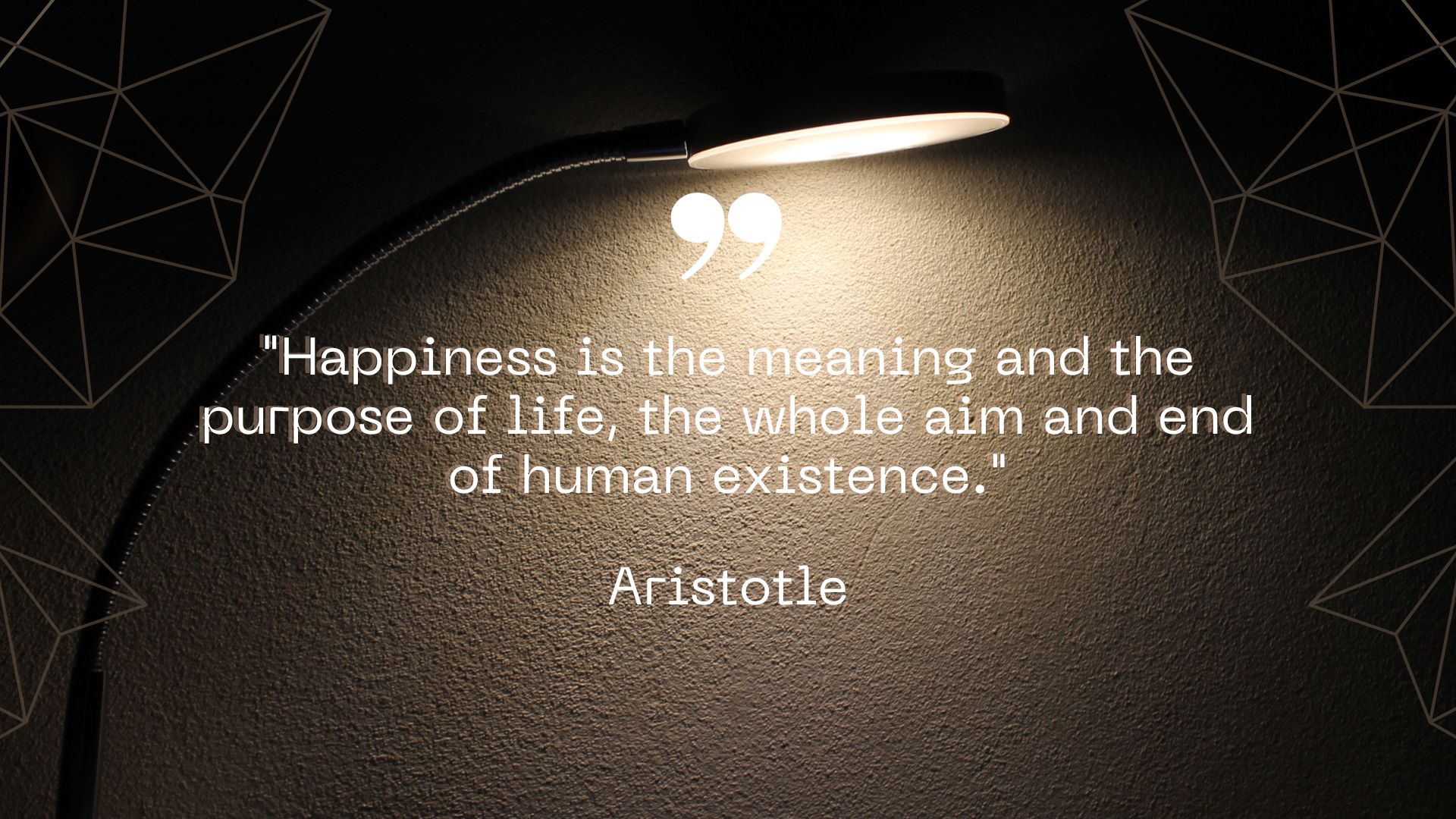“Courage is the first of human qualities because it is the quality which guarantees the others.”
— Aristotle
Aristotle, the ancient Greek philosopher, made profound observations about human nature and ethics. Among his many insights, one quote stands out: “Courage is the first of human qualities because it is the quality which guarantees the others.” In this exposition, we delve into the meaning of this powerful statement, exploring its significance and implications.
I. Defining Courage and its Essence
To comprehend Aristotle’s quote, we must first understand the essence of courage. Courage is not the absence of fear but the ability to face fear and act in the face of it. It involves taking risks, confronting challenges, and standing up for what is morally right. In essence, courage is a foundational quality that sets the stage for the development of other virtues.
II. The Interconnected Nature of Human Qualities
Aristotle believed that human qualities, or virtues, are interconnected and intertwined. The cultivation of one virtue often requires the presence of others. For instance, compassion may require courage to help those in need, and wisdom may demand courage to confront difficult truths. The bond between virtues creates a chain reaction, making courage the pivotal starting point.
III. Courage as the Catalyst for Moral Development
According to Aristotle’s ethical theory, cultivating virtues leads to eudaimonia, or flourishing, and a morally virtuous life. For individuals to reach their full potential and achieve eudaimonia, courage acts as the catalyst for moral development. Without courage, the pursuit of other virtues may falter, hindering personal growth and fulfillment.
IV. Overcoming Obstacles and Challenges
Courage enables individuals to overcome obstacles and challenges that obstruct their path towards virtuous living. Fear, doubt, and uncertainty can hinder progress, but courage empowers people to confront these impediments head-on. By facing challenges courageously, individuals gain the strength and resilience to persevere in their quest for virtuous living.
V. The Moral Compass
Courage serves as the moral compass, guiding individuals to navigate difficult ethical decisions. It helps individuals make principled choices even when they encounter adversity or societal pressure. When individuals possess courage, they are more likely to act ethically and uphold their values, ensuring the consistency and authenticity of their character.
VI. Inspiring Others and Building Communities
Courage is contagious. When one person exhibits courage, it can inspire others to do the same. As individuals within a community demonstrate courage, they collectively build a foundation for trust, cooperation, and mutual support. Courageous acts encourage others to rise to the occasion, fostering a virtuous and cohesive society.
Conclusion:
Aristotle’s quote, “Courage is the first of human qualities because it is the quality which guarantees the others,” holds profound wisdom. Courage is not merely a virtue in itself; it acts as a linchpin that unlocks the potential for the development of other virtues. By embracing courage, individuals embark on a journey of moral growth, navigating life’s challenges with fortitude and inspiring others to do the same. Ultimately, courage paves the way for a virtuous and fulfilling life.




